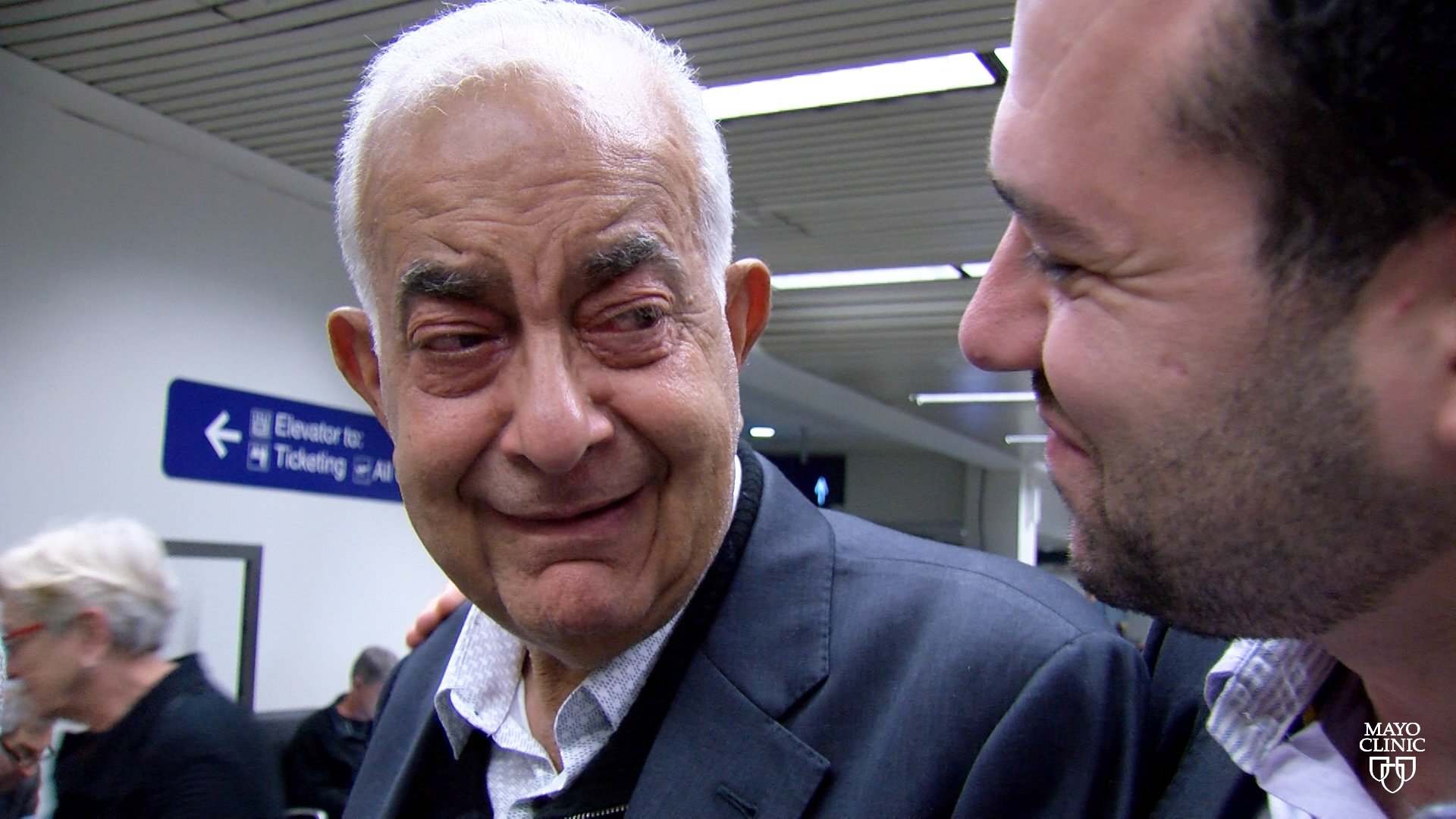 It's amazing how far some people will go to accomplish their dream.
It's amazing how far some people will go to accomplish their dream.
Dr. Fouad Chebib grew up in a small town in Lebanon. After finishing medical school in Lebanon's capital city, Beirut, Dr. Chebib chased his dream across the world to Mayo Clinic in Rochester, Minnesota.
"I'm one of the kidney doctors," Dr. Chebib says. "I am a physician-scientist."
There was one reason big reason his dream involved becoming a nephrologist at Mayo Clinic.
"I have a very passionate interest in polycystic kidney disease," he says.
"So what happens is the patients who have this genetic defect or mutation will start forming kidney cysts," Dr. Chebib explains. "Those are fluid-filled sacs in the kidney. So as they are growing, the kidney starts to fill with fluid and ... grow and grow. They have multiple ... cysts, and that damages the kidney, leading to kidney failure."
It's a devastating diagnosis.
"So far, there has been no cure," Dr. Chebib says.
Journalists: Broadcast-quality video pkg (3:16) is in the downloads at the end of this post. Please ‘Courtesy: Mayo Clinic News Network.’ Read the script.
But for the first time, there is hope for patients with polycystic kidney disease: a new drug.
"It blocks the thirst hormone," he explains. "It's called vasopressin."
It's a breakthrough drug.
"The cyst doesn't grow as fast," he says.
Dr. Chebib was one of the researchers on the Mayo Clinic team that helped develop it.
"Someone called me when the FDA [Food and Drug Administration] approved the medication," he says. "I was giving a talk at the time and then, right after that, I called my father."
Behind every big dream there's always an inspiration.
Dr. Chebib's father has polycystic kidney disease.
"He was on dialysis for several years," Dr. Chebib says. "That impression of me seeing him sick inspired me to make sure that no one else would go through that."
His dream was born – and then likely saved – along with his father, who received a kidney transplant; something quite rare in Lebanon at that time.
"Without that kidney transplant, probably I wouldn't be a physician," Dr. Chebib says. "I wouldn't be in the United States. I would be doing something different. And, just to be blunt, he probably wouldn't be here without that."
With his father's health restored, Dr. Chebib didn't have to worry about providing for his family. He was able to focus on his medical education and coming to the U.S.
"It was easier to get to Harvard than to Mayo Clinic, initially," he says with a smile.
But, eventually, he did make it to Mayo Clinic.
And on a cold, rainy day in October he and his wife head to the Minneapolis-Saint Paul Airport to pick his parents up. They're visiting from Lebanon.
"[We are] kind of excited," he says.
It's the first time he saw them since the FDA approved the drug he helped develop.
It's also the first time they met their grandson, John Paul.
There were hugs and kisses all around, along with terms of endearment in Arabic. And there were plenty of tears.
"Tears of joy and excitement," Dr. Chebib explains.
As Dr. Chebib wrapped his arms around his father, who was holding his infant son, he recognizes a touching moment that might have never happened. Three generations that almost never met, now embracing in the baggage claim area of an airport.
"It's a proud moment."
Later in the day, back at his home in Rochester, he watched as his parents bonded with their grandson. The doctor inspired by his father and now finding inspiration in his son, reflected on what the moment meant for him personally.
"Without his inspiration — without seeing him go through very, very rough times — [I wouldn't be here right now]," Dr. Chebib says. "By making sure we find cures for this genetic disease, hopefully other people will benefit from that."
It's amazing how far some people will go to chase their dream. And with his family surrounding him, Dr. Chebib realizes just how worth it has been.







